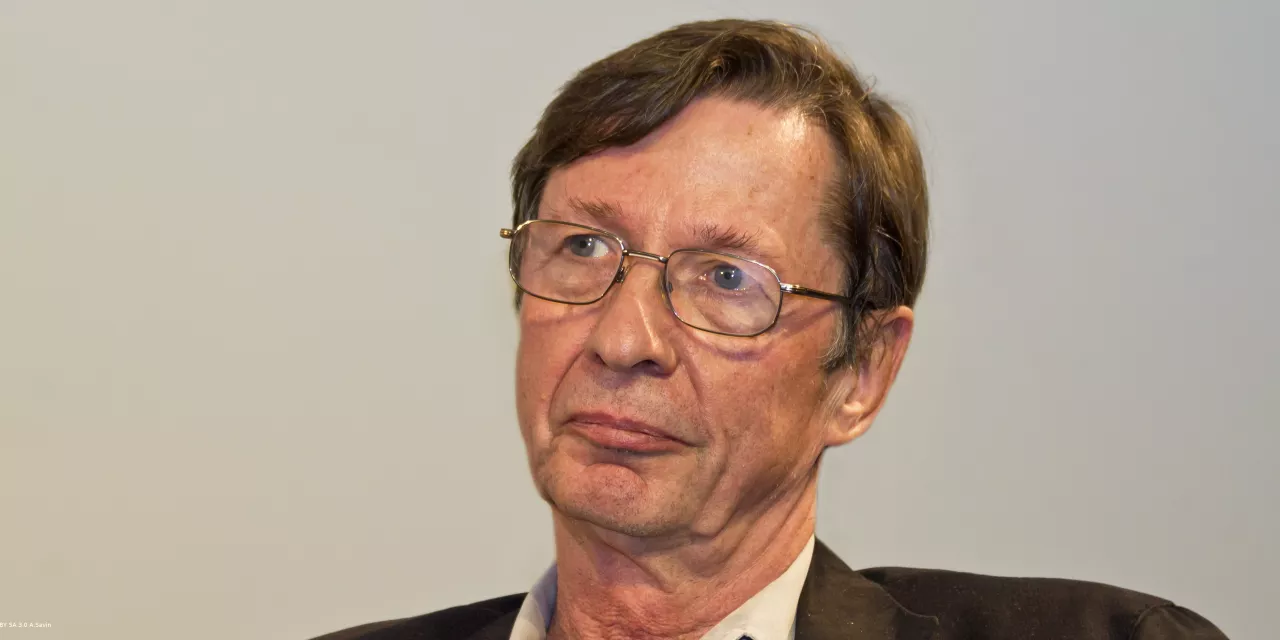The winner of the regional prize of this year's Big Brother Award is the Interior Senator (minister) of the federal (city) state of Berlin, Dr. Ehrhart Körting, for his more than dubious justification for the use of the so-called "silent SMS" by Berlin police. The Senator did admit that reservations against this practice voiced by data protection advocates were serious. But, as we can read in the proceedings of the Berlin senate, a decision had to be made "whether to protect culprits or victims" (cf. Drucksache 15/1834). He is intentionally overstepping the boundaries set by present legislation, which gives no legal foundation for the practice of locating criminal suspects with these "silent text messages".
To locate people in this way, the police are making use of the fact that a mobile phone, for technological reasons, reveals its location with a precision of up to 50 meters with each communication. The police send a text message with no content to the affected person. The mobile phone communicates with the network in just the same way it does for every other text message, but no message is displayed to the user, and the usual sound signalling the arrival of a message does not occur either. But a "silent" message does create a record of "link data" in the network, which the police can use to locate the suspect. This procedure, called "pinging", is made possible through software already in use by the German border police. And it has been used in the state of Baden-Württemberg in cases of hit-and-run accidents.
Berlin police did obtain - somewhat dubious - judicial orders for this procedure. But the question of a legal basis is not sufficiently answered by that.
The quote by the Berlin Interior Senator touches on an existential aspect of the rule of law, the relationship of executive and legislative bodies in the process of establishing new powers of state intervention. That is the important issue. We are not going to elaborate on the effects of "silent text messages" on the privacy of communications, a basic right, safeguarded by the German constitution, that is currently under severe attack anyway. Suffice it to say that the former judge at the Federal Constitutional Court (Germany's highest court), Jürgen Kühling, has described the relevant Article 10 of the constitution as a "total loss" (Grundrechte-Report 2003).
Why then are we awarding Dr. Körting? Above all for his act of ignoring legislation that is there to restrict state intervention into citizens' rights.
Sending a "silent text message" is in intrusion into the privacy of telecommunications protected under article 10 of the German constitution. This protection goes beyond communication, affecting the state of being ready to communicate as well. The privacy of an exchange of thoughts is endangered as soon as people have to assume that a mobile phone they have switched on but are not using will become an instrument of covert surveillance. An intrusion into telecommunications privacy requires a specific and clear legal basis, which makes its preconditions as well as the extent of the resulting powers clear to citizens.
Such a legal foundation obviously doesn't exist, a fact that our winner seems to acknowledge as well. To bridge the gap between non-existing laws and the measures already practiced by Berlin police, the Interior Senator is using the notorious rhetoric that data protection should not become "crimes protection". But: if data protection is to deserve its name in a society under the rule of law, it cannot provide unchecked access to citizens' data. From this perspective the code of procedure, for example, is a legal instrument that does inhibit the work of penal authorities, because under it not every means of investigation that might lead to success is permissible. The maxim that the end justifies the means is not appropriate under the rule of law.
Now, the legislative could of course seek to relieve any feelings of bad conscience we might have raised and legalise these measures in retrospect. But wouldn't that just replace the process of democratic discussion by the (police) power of fact?
For raising the need to debate these and related questions, the current Interior Senator of Berlin truly deserves the Regional prize of this year's Big Brother Award.
Congratulations, Dr. Körting.
Laudator.in





